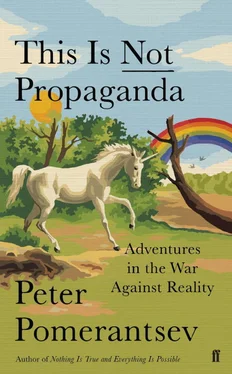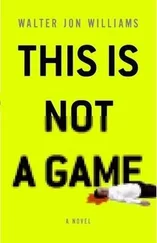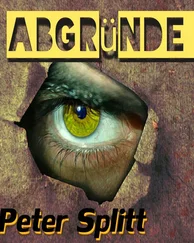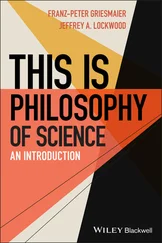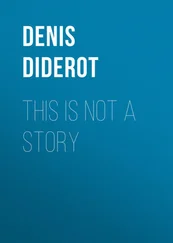Those images of people-powered revolutions articulated the victory of ‘democracy’ over oppression, connected to a whole vocabulary passed down from the struggles of dissidents and civil rights movements.
But what if a cleverer sort of ruler could find other ways to undermine the dissidents, rid them of a clear enemy to fight, climb inside the images, ideas, stories of those great people-power protests and suck them dry from the inside, until they were devoid of meaning? Could one even use the same language and tactics as ‘the democrats’, but for opposite aims?
Waves of Democratisation
Srdja Popović is halfway through explaining to me how to bring down a dictator when he gets a call. It’s a warning about a piece coming out tomorrow claiming he’s connected to the CIA and is behind revolutions in the Middle East. The piece first appeared in an Istanbul daily and then reappeared on a minor Serbian-language website full of pro-Russian conspiracies. From there it moved to a site owned by Christian Orthodox patriots, and it would soon be featured on the front page of one of Serbia’s largest tabloids, which, Srdja assumes, is publishing it because conspiracy theories sell rather than because the paper has it in for him personally. [1] Đondović, Jelena, ‘Turci Optužili Bivšeg Otporaša: Srđa Popović ruši vlade!’ Alo!, 25 August 2017; https://www.alo.rs/vesti/aktuelno/srda-popovic-rusi-vlade/120133/vest .
After all, he makes for a good story. Recently Russian state TV camera crews turned up at his office among the monolithic Communist concrete cubes of New Belgrade, where it sits between a hairdressing salon and a pastry shop. They tried to force their way in. If they had hoped to find dozens of CIA operatives, they must have been disappointed. Srdja runs a permanent staff of four Serbs, who sit in a neat grey office which would look like an accountant’s, were it not for the multiple posters of the clenched fist that is Srdja’s logo. It’s here they compile the step-by-step manuals for ‘non-violent direct action campaigns’, which are downloaded in their tens of thousands all across the world (the largest single location is Iran), organise workshops and schedule Srdja’s online Harvard training courses, which allow activists everywhere to pass exams in how to overthrow dictators without firing a shot.
‘Look at them widening the battlefield,’ says Srdja, when he gets off the phone, ‘copying the same messages even though they’re not allies, attacking from different angles. It’s as if they’ve been learning from me. And you know the funny thing? The two places we actually have never worked in are Russia and Turkey.’
He’s worked pretty much everywhere else, though. As you read this Srdja might be in Asia or Latin America, Eastern Europe or the Middle East. Inside a meeting room in an unremarkable chain hotel studious-looking men and women of all ages – human rights lawyers and teachers, students and small-business people – will be sitting in a semi-circle of desks, in the middle of which stands Srdja: slim, dressed like a 1990s college kid in a hoodie even though he’s in his forties, spinning and dipping his knees, then rising again as if he is trying to lift the mood in the room physically. He speaks in slightly Americanised English, his deep, rolled, Slavic ‘r’s giving every statement, even the most casual, an extra intensity. Everyone in the room already feels he is their closest comrade and that together they can change history. The students take copious notes, which they keep breaking away from as Srdja cracks another joke and they double up with laughter.
Srdja will often start his workshops with something seemingly light, like laughtivism: the use of humorous stunts in revolutionary campaigns. He might mention, for example, how Polish anti-Communist activists in the 1980s would go out on the streets with wheelbarrows filled with televisions during the Soviet news hour to express their rejection of state media.
Laughtivism, explains Srdja, fulfils a double role. The first is psychological: laughter removes the aura of impenetrability around an authoritarian leader. It also forces the regime into what Srdja calls a dilemma situation: if well-armed security services arrest activists for a jape, it can alienate parts of the population. Indeed, Srdja tells his workshops, activists should look to be arrested for doing something ridiculous. One thing you learn fast in Srdja’s workshops: they may be ‘non-violent’, but that doesn’t mean they are for the faint-hearted. Srdja’s belief in non-violence doesn’t come so much from pacifism as calculation. Regimes have the upper hand when it comes to physical force; what they can’t deal with are massive, peaceful crowds out on the streets.
The archetypal protest movement Srdja refers back to is the one he led himself. [2] Popović, Srdja and Matthew Miller, Blueprint for Revolution: How to Use Rice Pudding, Lego Men, and Other Nonviolent Techniques to Galvanize Communities, Overthrow Dictators, or Simply Change the World (New York: Spiegel & Grau, 2015).
He dims the lights to show video archive from the time between the mid-1990s and 2000 when he ran the student group Otpor! in its attempt to overthrow Slobodan Milošević, the Yugoslav dictator who led the country into three wars with its neighbours and sponsored warlords who built concentration camps and slaughtered Muslim civilians. Milošević’s media pumped out a version of the world in which Serbia was simultaneously on a 700-year-old mission to save Europe while also a benighted victim of the imperial West. Meanwhile, patriotic gangsters beat up opposition ‘traitors’ in the dark alleys of Belgrade and partied to a local mix of frenetically upbeat techno and folk music.
When Milošević’s domineering wife announced she would rather see the protests end in bloodshed than her husband resign, Otpor! set up a blood transfusion station and delivered blood bags to the government: will the Miloševićs kindly leave now they’ve got their blood?
But such pranksterism is just the start. As Srdja’s workshop moves on, the lessons become more strategic. He teaches the need to formulate a vision of the alternative political model you want to see; how to bring very different groups around a ‘lowest common denominator’; how to find the weak spots in the adversary’s ‘pillars of power’ and bring them over to your side.
Back in the final years of Milošević’s Yugoslavia, Srdja and his partners developed a manifesto which argued that real patriotism meant peace with Serbia’s neighbours and joining the ‘international community’ – the West, Europe. The world wasn’t a conspiracy against Serbia. The student marches were full of the flags of many nations. This played to many Serbs’ sense of self and history. Serbia had fought against the Nazis, had kept its distance from the Soviet Union: why shouldn’t it be partnered with Western allies? It was a message that could resonate with miners and farmers, not just students.
Otpor! were making progress, but when, in 1999, NATO bombed Belgrade to try and curb Milošević’s ethnic cleansing of Kosovo, Srdja feels it only helped reunite the people around the dictator. The bombs hit Milošević’s TV complex, nicknamed the Bastille, but by that time its media monopoly was already broken. Srdja had B92, the banned radio station that broadcast from a friend’s basement via the Internet – a technology the regime was only just starting to understand – and which offered a mix of punk rock and political discussion, forming an online network with small independent media throughout the land.
They had started winning over not only students and labour unions, but also one of the bastions of Milošević’s regime: the police. Otpor! created street shows that rewarded the ‘best policeman in Belgrade’ with a prize, making the cops feel welcomed by the movement. When they saw polling that showed most of the country was now against Milošević but would never back city liberals like Srdja, Otpor! gritted their teeth and backed a patriotic academic as a unity candidate in the next election. Milošević cheated. Protests grew. Belgrade turned into a street party, the students joined by miners and farmers. Milošević sent the army onto the streets. Girls shone mirrors into the soldiers’ faces so they could see their own reflections and remember their own humanity, put flowers into the barrels of their guns. The army refused to shoot. Milošević was over-thrown and two years later was facing trial for war crimes in the Hague.
Читать дальше
